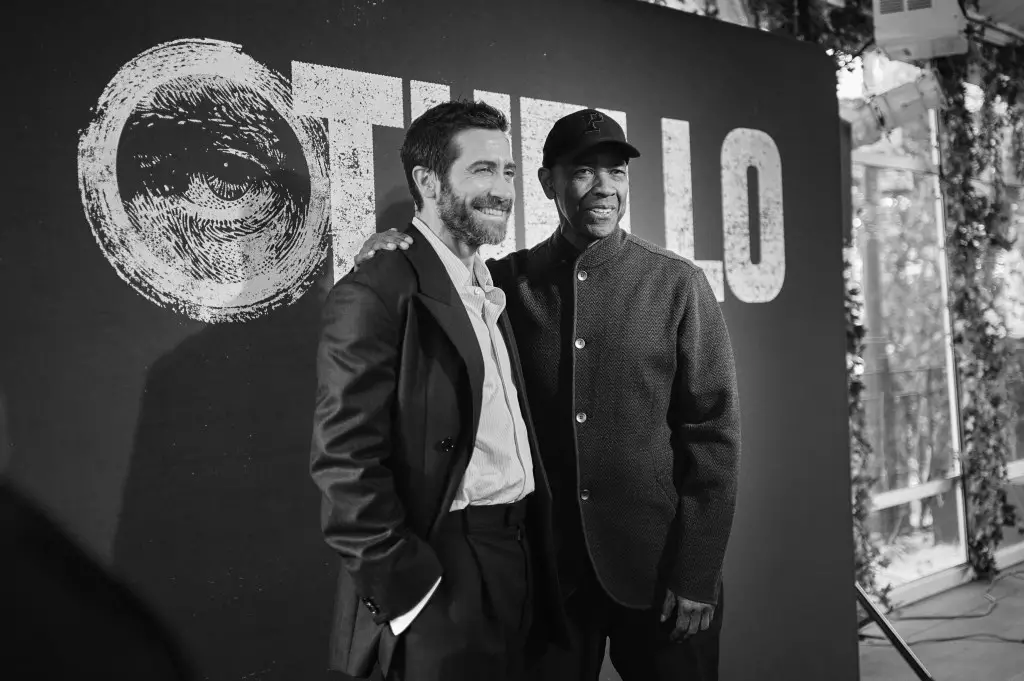It’s not every day that a theatrical production overturns not just expectations but crucial earth-bound realities. With its astonishing first-week gross of $2,637,158 from just seven previews, Denzel Washington and Jake Gyllenhaal’s rendition of Othello has emerged as a seismic force at the Ethel Barrymore Theatre. This script-crafted juggernaut was not just successful; it has crushed previous revenue records in entertaining fashion, easily overshadowing past benchmarks such as The Band’s Visit and A Raisin in the Sun.
What’s particularly striking is how the average ticket price for this production stands tall at a staggering $361.90. The production teaches a salient lesson about the marketplace: content quality can extract premium value. Viewers are willing to part with their hard-earned money if they perceive a fortuitous return on their investment — in this case, the unrivaled charm and talent of Denzel Washington and Jake Gyllenhaal. Thus, Othello’s commercial success stands in stark contrast to the prevailing narrative in some circles that theater is declining in relevance and audience engagement.
In an age often characterized by binge-watching and instant gratification, traditional theater might seem passé. Yet the presence of Hollywood heavyweights like Washington and Gyllenhaal shifts the paradigm entirely. Their illustrious careers have built a bridge between Broadway and the mainstream, effectively reviving interest in classical storytelling through the lens of modern sensibilities. As our cultural environment oscillates between the digital realm and live performances, star talent undoubtedly acts as a magnetic pull, drawing in diverse crowds.
Moreover, the appointment of Kenny Leon, an acclaimed director known for his emphasis on diverse narratives, signals a purposeful reinvention of Shakespeare’s work. Leon’s approach may resonate deeply with contemporary audiences, making this centuries-old tale of jealousy and ambition feel strikingly relevant. Thus, Othello is less an artifact from the past and more a commentary on emotional turbulence faced in today’s socio-political landscape.
It’s worth pondering why a play inundated with themes such as envy and deception commands such enormous box office success in current times. Perhaps its potency lies in the rawness of the characters’ emotional depth, reflecting a nuanced understanding of human relationships—a reflection of society’s persistent struggles with trust, betrayal, and power dynamics. While some may argue that traditional productions do not appeal to modern sensibilities, Othello stands out as an example of how these themes continue to resonate.
Furthermore, this interpretation can serve as a mirror, revealing the complexity of contemporary relationships, highlighting the sometimes perilous intersections of personal ambition and moral integrity. As Washington powerfully embodies a character fraught with struggle, the audience can’t help but draw parallels to the broader authenticity deficit in today’s leadership. In an era hungry for credibility, Othello emerges not just as a theatrical experience but a socio-political phenomenon.
The ripple effect of Othello’s success stretches far beyond its box office takings. As the production breaks records, it simultaneously elevates the fortunes of surrounding shows and venues. With ticket sales soaring, other productions like MJ and Gypsy are also reaping the rewards, showcasing how one heavyweight can galvanize an entire industry that had faced its share of struggles in recent years.
Despite this captivating success, it also raises critical questions about accessibility and the gradual stratification of theatergoers. The rising average ticket prices evoke concerns that Broadway may be veering towards exclusivity, catering primarily to affluent audiences while sidelining everyday viewers. This consideration isn’t merely about wealth; it extends to how culture might alienate segments of society.
Othello presents a dichotomy where art eclipses economic barriers to some extent, but what of those who can’t meet the soaring price tags? While high-profile productions may shine momentarily, we must remain vigilant about fostering inclusivity and supporting works that represent a breadth of voices across the spectrum. The lasting legacy of Othello must balance commercial triumph with cultural responsibility.

